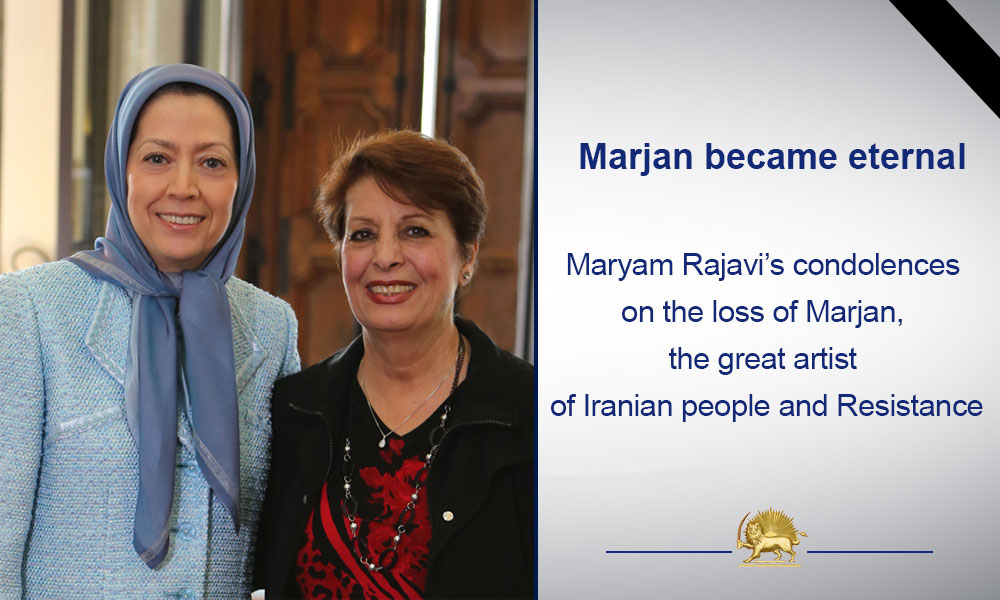Maryam Rajavi’s statement on death of Iranian singer Marjan
Maryam Rajavi, the leader of the Iranian opposition, has issued a statement expressing her condolences on the death of popular Iranian singer Marjan, who was a supporter of the Iranian people and their Resistance from the beginning to the end.
She said: “I was deeply saddened by the untimely death of Iran’s popular artist, my dear Marjan… The long painful years of incarceration and torture alongside resistant women of the [People’s Mojahedin Organization of Iran (PMOI/MEK)], led Marjan’s freedom-loving soul and restless conscience to a new path to freedom of her people and her country.”
Rajavi said that Marjan as renowned singer joined the MEK during her years in exile and served as the voice of the oppressed Iranian women and girls for two decades, with her voice spurring hope for a new dawn in the darkest of times.
#Marjan rose up against the status quo and attested to this truth that commitment to freedom is all of what every human being has. And in the era of darkness and repression, a popular artist must deliver on this great commitment. #Iran #FreeIran https://t.co/kaeNmlMh4i pic.twitter.com/0FOqNpIIav
— Maryam Rajavi (@Maryam_Rajavi) June 7, 2020
She said: “She rose up against the status quo and attested to this truth that commitment to freedom is all of what every human being has. And in the era of darkness and repression, a popular artist must deliver on this great commitment. Indeed, female artists such as Marjan and Marzieh, who rose up and fought the regime, are genuine representatives of the suffering of Iranian women and their passionate desire for liberation.”
Rajavi called Marjan “a very dear sister” and extended her condolences to Marjan’s daughter Poupak and the rest of her family, as well as all who knew Marjan. She explained that the fight was not over as other young rebellious women will rise up for freedom in her place.
She said: “My dear Marjan will always stay with us and will sing her songs of freedom, songs which will certainly be realized. Marjan’s songs, her choice, and her commitment to freedom and the people of Iran are inspiring to the young people of Iran and particularly to defiant young women. Her voice will resonate in tomorrow’s free Iran.”
Rajavi then began to cite some of the songs, which spoke about regime change, martyrs, political prisoners, the Iranian Intelligence Ministry, and the rebuilding of Iran after the overthrow of the mullahs.
She then explained that Marjan had told Iranian women to “rise up” and “lead the way” in the fight for freedom against the mullahs; how Marjan had told Iranian women to “believe” in themselves, their “power” to bring change, and their “determination” to make it the right change.
Rajavi concluded: “Hail to Marjan; she became eternal.”
